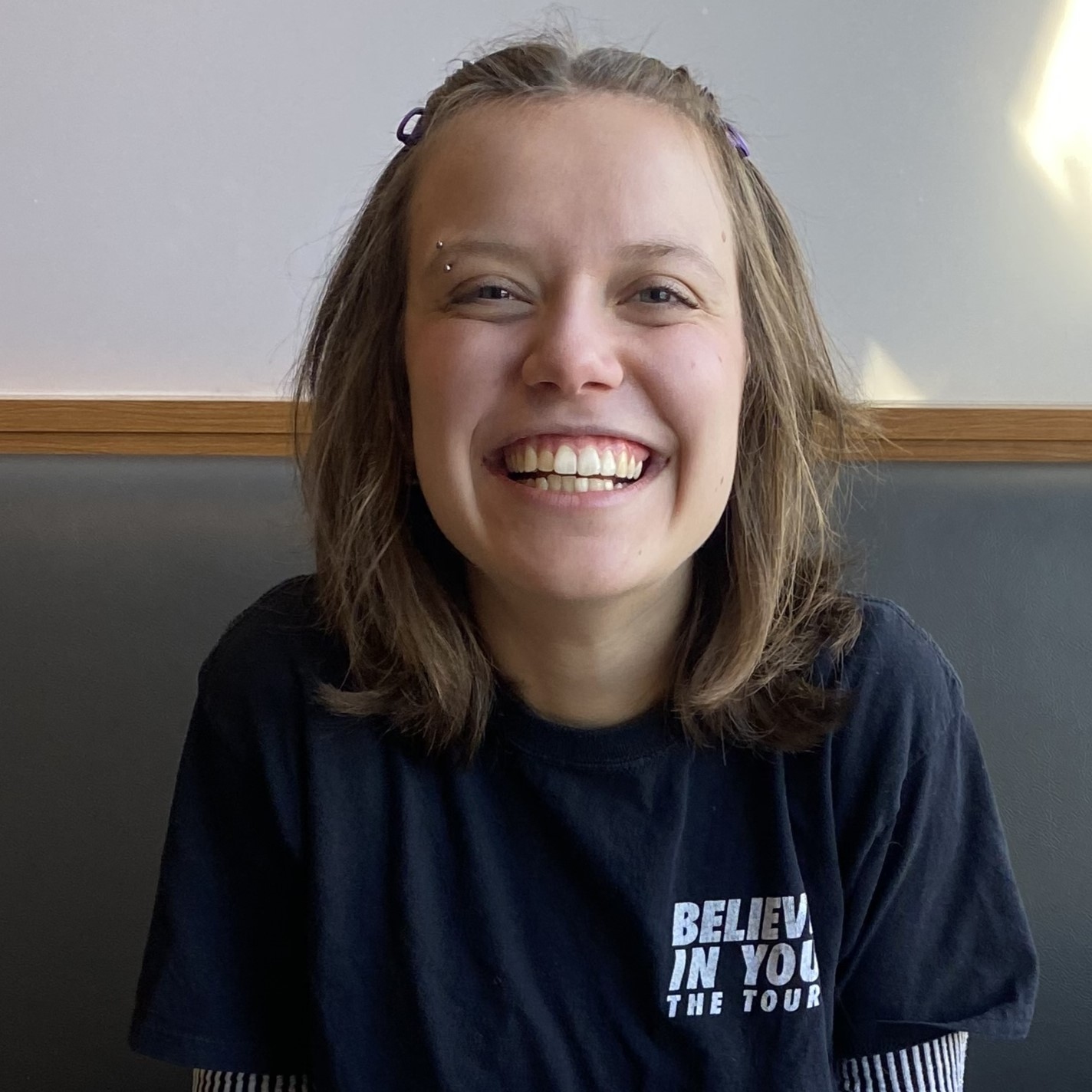
CMU’s social work degree makes a difference
 "The fact that we get to look at social work from so many different perspectives will be really helpful for working with a broad scope of people in the future," Nya Dubyk says.
"The fact that we get to look at social work from so many different perspectives will be really helpful for working with a broad scope of people in the future," Nya Dubyk says.
Nya Dubyk never thought she would be a social worker.
"I was actually quite skeptical about going into any social work program because I'm aware of the harms that have happened under the 'social work' title," says the Canadian Mennonite University (CMU) student.
After finishing her first year at CMU taking courses in Social Services, she found herself drawn to the comprehensive cross-program learning at the heart of CMU's Bachelor of Social Work and decided to switch.
"The fact that we get to look at social work from so many different perspectives will be really helpful for working with a broad scope of people in the future," Dubyk says.
She says that not only are other students in her social work cohort also interested in engaging critically with course material, but they are also encouraged to take other CMU programs like International Development Studies or other Biology courses.
This vision for a panoramic program is something that Dr. Alexander Sawatsky, Professor and Chair of Social Work at CMU, says is part of CMU's distinct perspective.
Already established as a heavily interdisciplinary university, CMU's courses are designed to encourage independent and practical critical thinking skills necessary for success in an ever-evolving job market.
"The whole idea of social work is that it's on some level emerging from an interdisciplinary framework in the first place and other ideas that shaped it," Sawatsky says, explaining how social work pedagogy developed from other academic disciplines like psychology, sociology, and economics.
"So, we're just continuing to sort of lean into that further."
For Dubyk, someone aware of the vocation's historic complacency in harmful colonial policies and practices, such as residential schools and the '60s Scoop,' CMU's attention to the sensitivities of social work's history made all the difference.
She highlights a particular course called "Decolonizing Human Behaviour in the Social Environment," which introduces Indigenous, anti-colonial and non-Western theories to challenge a colonizing view of human nature, behaviour, and action.
Dubyk says it's about "incorporating Indigenous ways of knowing instead of just coming in and thinking that we know what we're talking about."
"I feel like it really does give a broader understanding of what social work is and what we can do with social work and also reach different people," she says.
Sawatsky says the intentionality of the curriculum opens the students to engage with different communities and cultures in a way that's more equitable and more respectful of different notions of what human nature may be.
He says CMU's program tries to "get at this in a way that is more holistic and sees all of these other ways of knowing as equally valid understandings of culture and community and individuals."
The weight of discussions like these, says Dubyk, are guided by professors and instructors who are "super understanding, patient and just like empathetic, compassionate people."
"They have a lot of experience in the field, which is especially great. When you ask them a question, they will likely have a story or some connection to help you understand better."
She says having strong connections with her professors has made the field education requirement of the degree less stressful.
The field education practicum experience is an extension of CMU's work-integrated learning requirement for all students. This is a chance for students to implement what's they've learned in class and grow in their experience as social workers. Students are supported in this work by agency field instructors and faculty field liaisons.
"It makes me feel a lot better knowing that my practicum is in very good hands," Dubyk says.
"For me," Sawatsky says, "the field education process should help (students) see people rendered fully human with all of their flaws and all of their glory, and if they don't get that out of the experience, then we fail them."
"We need people that actually care legitimately about these human beings that are experiencing harm and want to help do something about that."
Find all the information you need to apply to CMU's BSW and other programs at cmu.ca/apply.